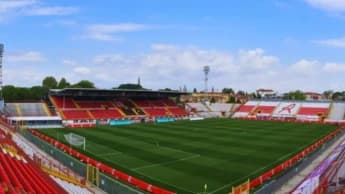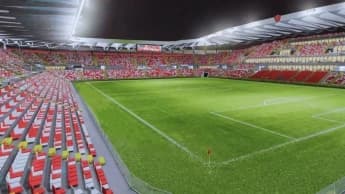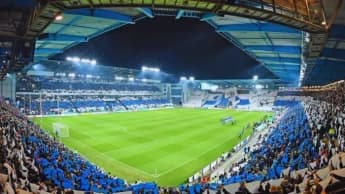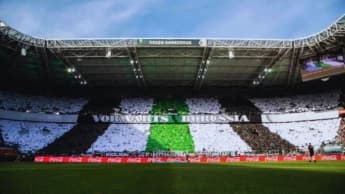Old Trafford: The Iconic Theatre of Dreams

Old Trafford, known as the Theatre of Dreams, is a legendary stadium that blends historic charm with modern amenities, offering fans an unmatched experience in the world of football.
Situated in Greater Manchester, England, Old Trafford is the iconic home of Manchester United, famously referred to as 'The Theatre of Dreams' – a nickname that was introduced by Sir Bobby Charlton. With a capacity of 74,310 seats, it is the largest club football stadium in the UK and ranks as the second-largest overall, just behind Wembley Stadium. Since its opening in 1910, Old Trafford has been the site of numerous victories, challenges, and extraordinary moments. Its closeness to Old Trafford Cricket Ground and the nearby tram stop enhances its accessibility, solidifying its reputation as one of the most important football venues worldwide.
In the 1990s and 2000s, the stadium experienced extensive renovations, transforming it into a modern stronghold while preserving its historical appeal. Plans for additional expansion are in the works, including the potential addition of a second tier to the South Stand, which could increase its capacity to approximately 88,000, further solidifying its reputation as a legendary home of football.
Memorable Matches
Old Trafford has been the site of some of the most exciting and momentous matches in football history. From the numerous league victories of Manchester United to significant events like the UEFA Champions League Final in 2003, this stadium has served as a stage for unforgettable experiences. A notable highlight is the 1939 FA Cup semi-final between Wolverhampton Wanderers and Grimsby Town, which still holds the record for the highest attendance at the stadium, with 76,962 fans present to witness the thrilling encounter.
This stadium has played a crucial role in the football calendar, hosting significant events such as the 1966 FIFA World Cup, UEFA Euro 1996, and the 2012 Summer Olympics. Additionally, Old Trafford's lasting legacy is closely linked to its participation in domestic cup competitions, including the FA Cup Final and the subsequent replays, firmly establishing its place in the annals of English football history.
Attributes & Amenities
Old Trafford seamlessly blends historical appeal with contemporary facilities, providing top-notch amenities for both athletes and spectators. The renowned stands, such as the North, West, and East Stands, boast luxury boxes, VIP lounges, and a variety of fan zones. The stadium's spacious concourses facilitate easy movement for crowds, while hospitality areas offer exceptional services.
Besides offering sports facilities, Old Trafford also serves as a venue for exhibitions, events, and club tours, which provide fans the opportunity to delve into the rich history of Manchester United through engaging interactive displays. Another important aspect of the venue is its accessibility, with various transport options available, such as the nearby Trafford Park train station, making it an accommodating destination for fans.
Significance in History
Old Trafford has had a profound impact on the world of football for over a century, establishing itself as one of the sport's most iconic venues. Since its opening in 1910, it was crafted to be a modern stadium with a seating capacity of 100,000. The initial years were marked by significant events, including the hosting of the first international match at the stadium in 1926.
Old Trafford is not only the home of Manchester United; it has also hosted significant national and international competitions, ranging from the 1911 FA Cup Final replay to crucial World Cup matches. Its function as a neutral venue for cup finals and international tournaments solidifies its status as a vital part of football culture. Additionally, Old Trafford's history extends beyond football, as it has been the setting for rugby league events like the Super League Grand Final, enhancing its importance in the landscape of British sports history.
Future Events
Old Trafford is a central hub in the world of sports, featuring a myriad of high-profile events each year. The primary draws are Manchester United’s matches in the Premier League, FA Cup, and European tournaments, attracting fans from around the world. Additionally, the stadium continues to host international games, regularly featuring England’s football and rugby teams.
Moreover, Old Trafford is anticipated to play a significant role in the rugby league landscape, hosting events such as the Rugby League World Cup. The stadium's legendary reputation guarantees that it will remain a prime location for major sporting events for many years ahead.
Experiencing the Fans
Old Trafford provides an unparalleled matchday experience, with its historic significance serving as a remarkable backdrop for contemporary football. Supporters gather in the stands, where the legendary 'Stretford End' generates an electrifying atmosphere buoyed by its devoted fans. The stadium's design ensures that every seat offers a superb view of the match, while the amenities guarantee comfort and satisfaction.
As matchday approaches, anticipation rises among fans who indulge in various food choices, ranging from traditional football snacks to gourmet dishes, while merchandise outlets showcase an array of Manchester United merchandise. Regardless of whether one is in the VIP areas or the general seating, the atmosphere at Old Trafford is always charged with energy, making it an essential destination for football enthusiasts.






